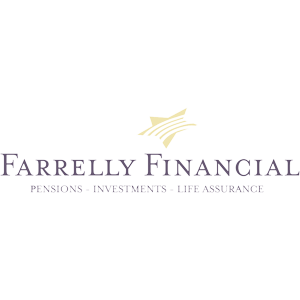
S&P 500 reaches new highs
June 11, 2021
Responsible Investing Review 2020
July 15, 2021Bank of Ireland aims to have €5 billion of sustainable finance loans by 2024 to keep pace with the growing demand for often-cheaper “green” loans from households to large corporations as Covid-19 has accelerated the focus on climate change.
The bank currently has a €2 billion sustainable finance fund.
Bank of Ireland’s green mortgage products for homes with high energy-efficiency ratings or to help borrowers upgrade their property are priced at a discount of 0.2 percentage points to each of its its fixed-rate home loans.
Meanwhile, the group has built up a €1 billion sustainable loans book in its corporate lending business from scratch over the past two years, with borrowers held to targets such as carbon and landfill waste reductions, according to Bank of Ireland’s chief strategy office Mark Spain.
“While there was a view that the Covid-19 pandemic would push climate action down the policy agenda, the opposite has happened,” said Mr Spain, adding that investors, regulators and legislators are forcing the agenda. “The €5 billion fund is responding to the demand that we currently envisage. If demand increases, we’ll respond to that.”
Still, he said demand across small businesses, who are not exposed to the same investor and regulatory demands as larger corporation, remains muted, particularly as many grapple with challenges posed by the pandemic and Brexit.
Sustainable
While Mr Spain said that “greenwashing”, where organisations make inaccurate claims about how climate friendly their actions are, is an issue internationally, he said that sustainable finance also has a commercial logic for banks.
“Aside from it being the right thing to do, it is also about mitigating risks,” he said, adding that, for example, more energy-efficient homes have greater collateral value in the event that a mortgage runs into trouble.
Regulators are expected to base capital requirements for banks in future partly on how their loan books are exposed to climate change and environmental degradation.!!!!
Bank of Ireland raised €750 million in March to fund sustainable projects through its first green bond and followed up two months’ later with a further €500 million issue, taking advantage of a fast-growing area of global finance.
Meanwhile, AIB set a target late last year for green lending to account for 70 per cent of new customer advances by 2030, including financing for energy-efficient homes, electric vehicles and renewable energy projects.
The Government’s Climate Action Bill, due to be adopted within weeks, sets out a specific obligation on the State to pursue and achieve the national climate objective of net-zero emissions by no later than 2050 and at least 51 per cent by 2030.





